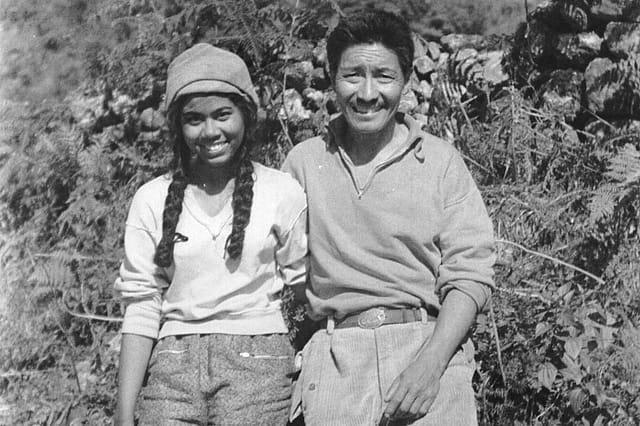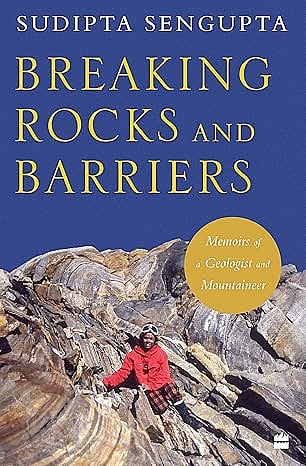Woman on the Peak

There are trailblazers in the public eye and then those who quietly go about their business in the shadows. Sudipta Sengupta belongs to the latter. She captures this less-known journey in her memoir, Breaking Rocks and Barriers, as she sits easy in retirement, reflecting on her groundbreaking days of yore.
Sengupta is one of India’s pioneering geologists, who never shied away from treading paths that few women dared to, post India’s independence. While it took her places, it also put her in situations that often tested her poise and patience.
Sengupta was often hassled, because of her gender, but remained unmoved. Her parents had raised her as a strong and independent woman. They encouraged their girls to chase their calling—one a virologist, the other a classical dancer. Sengupta, the darling of the family and the youngest of the three, chose to immerse herself in the world of rocks and minerals at the Geological Survey of India, which was considered a man’s world in the early 1970s.
The wanderlust bit her early. Her father’s postings with the meteorological department took the family places and exposed them to lessons that only come with travel. It then came as little surprise when Sengupta dropped physics to study geology, simply because it would allow her to travel. Just one of two girls in the science department at Jadavpur University when she joined in 1962, tells you a lot about those times, as does the fact that she had to visit the Arts section every time she wished to access a ladies’ washroom.
She joined Jadavpur University in 1962.
Those habits served her well when she chose a life in the outdoors. While still a student, she pursued her basic and advanced mountaineering courses and went on Himalayan climbs, also getting the first ascent of a virgin peak to her name. But it was while out on the field as a geologist that she encountered real challenges. Unwarranted attention while working in remote areas needed to be dealt with as tactfully as sexism at the office.
AIming High
20 Feb 2026 - Vol 04 | Issue 59
India joins the Artificial Intelligence revolution with gusto
Then, there was always the question of survival in uncharted territory. High up on the treacherous slopes, an avalanche threatened to wipe out the expedition team on a few occasions; in the jungles of central India, a look out for wild tuskers was imperative alongside the day job. Most mornings started with a long hike to get to her site, followed by working long hours in inclement weather conditions and a laborious trudge back to camp with a haversack full of rocks and stones.
Her proficiency took her to the UK, and more importantly, Antarctica, where she pioneered early research work for the country. Sengupta was one of two women to join the third Indian expedition in 1983 that established Dakshin Gangotri, the country’s first permanent research station in Antarctica, and she subsequently made another visit six years later.
Her chase of excellence brought her recognition and won her awards, landing her the opportunity to meet renowned figures such as the Duke of Edinburgh, Prince Philip, legendary mountaineer, Tenzing Norgay, and former prime ministers, Indira and Rajiv Gandhi, besides eminent researchers and experts from the world of science. There was learning every step of the way, not just related to her field, but also to cultures, languages and local practices.
Over the years, Sengupta experienced the loss of friends and colleagues while in the outdoors and had to also get accustomed to living away from her family for extended periods of time. But all along, she knew that she was opening doors for the next generation of female geologists, and she guided them as a teacher and a mentor in later years.
For all that she has achieved in her lifetime, Sengupta’s account could have been a lot more engaging for the reader. It’s dotted with minor details and often reads like a diary for her next of kin, rather than as a chronicle for a larger audience.

